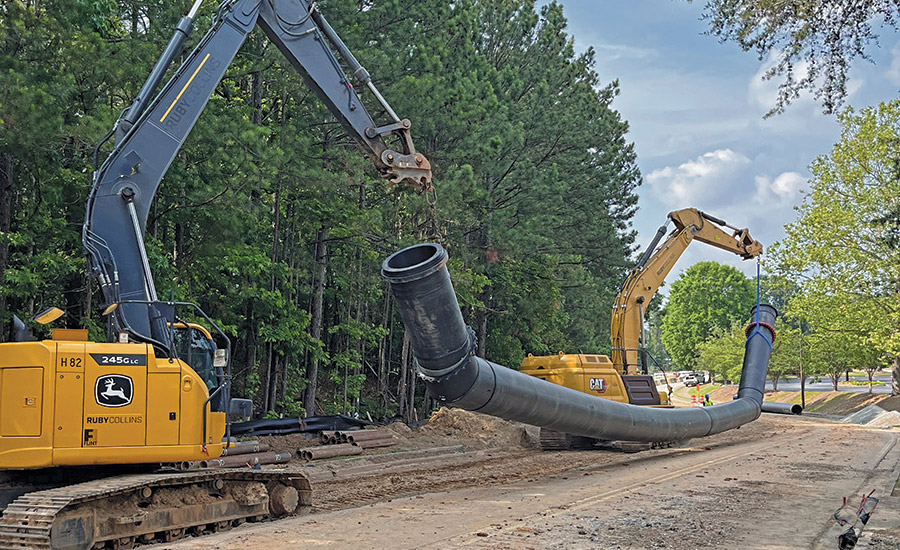2024 Southeast Best Projects
Best Water/Environment - Old Alabama Rd. 48 - Water Main Relocation

Photo courtesy Ruby-Collins Inc.
Old Alabama Road 48” Water Main Relocation
Roswell, Ga.
BEST PROJECT
Submitted by: Ruby-Collins Inc.
Owner: City of Atlanta, Dept. of Watershed Management
Lead Design Firm, Civil Engineer: BenchMark Management
General Contractor: Ruby-Collins Inc.
Successfully relocating 5,200 linear ft of 48-in. ductile iron water main along active roadways in close proximity to the Chattahoochee River took meticulous attention to detail and some out-of-the-box culvert thinking.
Ruby-Collins tackled this fixed design-build project without disrupting the water supply for Atlanta, moving the water main out of the way of a highway project. Operating in active roadways and in close proximity to a popular park demanded meticulous coordination to keep traffic flowing and workers safe.
Project requirements included continuous operation of the vital water supply for Atlanta from a jointly operated Fulton County water source north of the city, though the project team says in the submission that the greatest challenges the project faced revolved around its proximity to the Chattahoochee and the incursion of water into the excavations at the point of bypass, line-stop and tie-in to the existing line. Divers were needed to perform the work safely following failures of exising facilities. Proximity to the river also resulted in hydraulic incursion challenges that required grout injection.

Photo courtesy Ruby-Collins Inc.
The team also value engineered a proposed jack-and-bore section under an existing 8-ft by 12-ft box culvert into a 72-in. hand mine tunnel.
Overcoming challenges like up to two-year lead times for large diameter pipes, the shielded excavation required constant vigilance against intruding water, leading the team to collaborate with a specialized diving subcontractor to successfully complete the project.
Ruby-Collins prioritized various in-house and third-party safety training sesions, including Excavation and Confined Space Competent Person courses as well as OSHA 10-hour sessions for more than two dozen workers. A third party was also brought in to inspect traffic control measures on the project, which had little to no impact on neighbors, even with blasting and other underground work. An OSHA inspection via the National Trench Emphasis program resulted in no recommendations, citations or return inspections for the project, which recorded zero recordable incidents or lost-time accidents during 38,500 worker hours.



